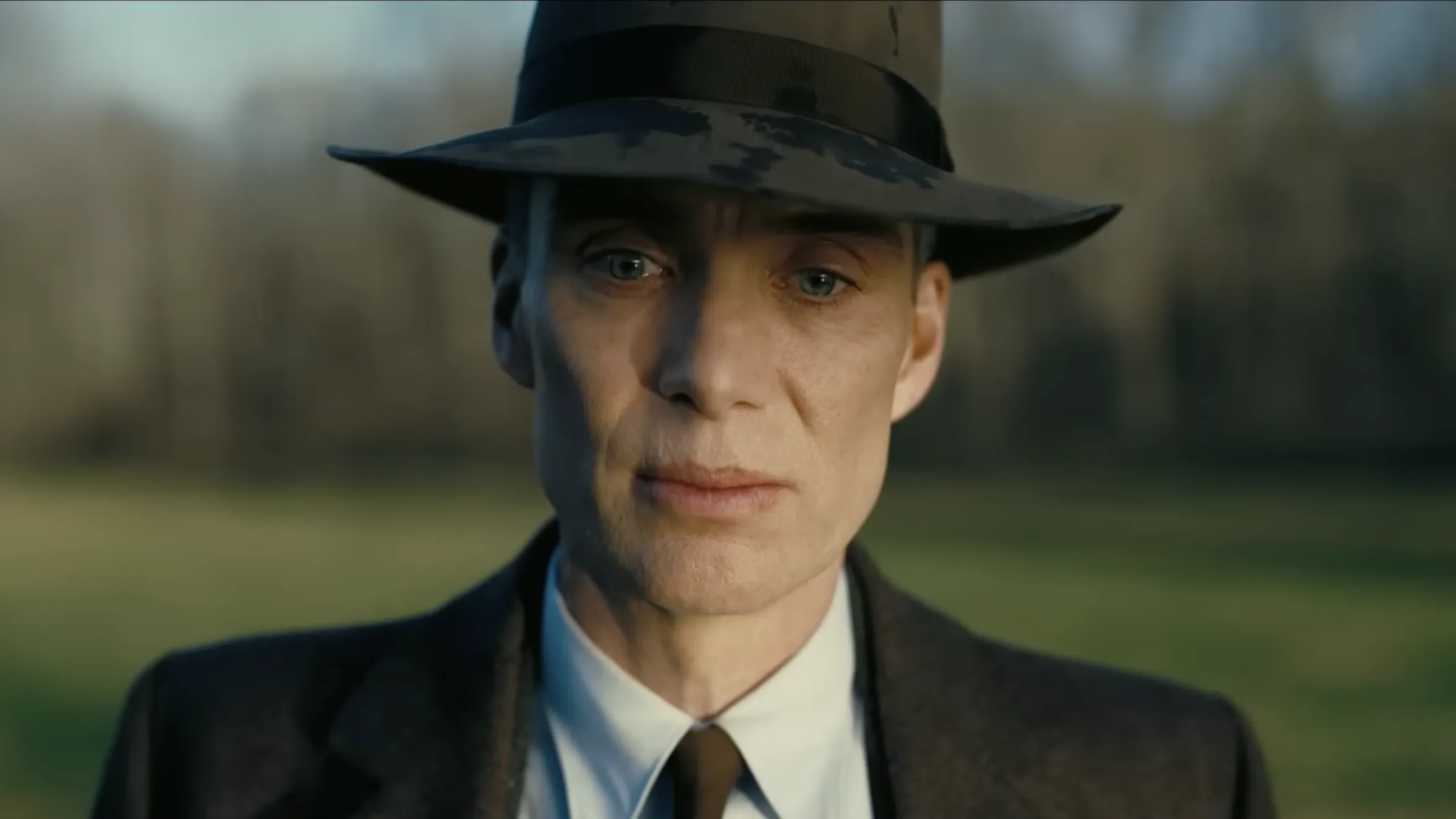Christopher Nolan's latest bombshell takes a leap into uncharted territory – the biopic genre. In 'Oppenheimer,' the brilliant Cillian Murphy delivers an emotional powerhouse performance, portraying J. Robert Oppenheimer, the father of the atomic bomb. With an all-star cast, immersive writing, and poignant themes that resonate with the world today, this epic and thought-provoking masterpiece is a must-see.
Oppenheimer: The Human Atom
After consistently challenging our minds with every new project he undertakes, Christopher Nolan returns with his latest bombshell (this time, metaphorically and literally) and takes on a genre we wouldn't necessarily expect from him: the biopic. His subject is J. Robert Oppenheimer, the father of the atomic bomb, as he was nicknamed in the press at the time. It's a serious subject, devoid of any science fiction embellishments (though science is still central), and with the reputation of the British filmmaker, it promises a unique approach to a difficult topic that might destabilize many with its atmosphere and perspective. Is this Nolan's ultimate masterpiece or a graying damp squib?
An Emotional Atomic Powerhouse
Oppenheimer remains a Nolan-esque work but operates on a different stratosphere. It is much closer to "Schindler's List" than "Interstellar," as Nolan offers a psychological analysis of a brilliant yet fragile genius. It's a humanistic drama that can hardly be called a traditional biopic as it focuses on a specific period in the life of the famous Jewish scientist: the creation of the atomic bomb through three distinct timelines.
Led by a transfigured Cillian Murphy, who delivers an explosive performance and carries the film on his shoulders for its three-hour runtime, the movie offers a deeply engrossing and nuanced portrayal of this passionate man who wanted nothing more than to share his genius with the world. The character's psyche is palpable through subliminal staging ideas that plunge us into the tormented mind of a misunderstood and unique genius. His relationships with the supporting characters bring even more depth and complexity to the protagonist.
Perfect Casting: Immersive Technique and Writing
Blessed with a stellar cast, led by Robert Downey Jr. (giving one of his best performances since leaving the Tony Stark persona behind) as Strauss, Oppenheimer's nemesis, in a relationship that might resemble Batman/Joker dynamics; Florence Pugh, who captivates the audience with every appearance; Emily Blunt, Matt Damon, Josh Hartnett, and others, Nolan surrounds himself with talents that deliver solid performances, making the film all the more poignant and captivating. Action scenes are replaced by expositional moments and dialogue as sharp as combat scenes.
Nolan has always been profound in his reflections (lines from "Batman Begins" continue to haunt me while relating to certain aspects of personal life), and Oppenheimer's lines carry powerful meaning while echoing the current situation with the war in Ukraine and the state of the world today. The final, poignant shot will leave you stunned and contemplative as you leave the theatre.
Nolan's Expertise on Display
Nolan showcases his craftsmanship with surgical editing, building crescendo with each event (though some elements made me cringe a bit, but I'll revisit that later), accompanied by stunning visuals and a moving, powerful musical score by Ludwig Goransson (also known for his work on "TENET"). Oppenheimer grips the audience emotionally and psychologically with tense and impactful moments.
Hoyt van Hoytema's cinematography is elevated with shots reminiscent of a John Ford Western, portraying Oppenheimer as a cowboy in his Los Alamos base. Some might be disappointed that the film doesn't dwell on the bombings of Hiroshima or Nagasaki, but it's clear that the focus is on Oppenheimer himself, not the tragedies of those events. The third act, especially, stands out with its intensity, leading up to the aforementioned final shot.
Not Without Flaws
However, not everything is perfect, and Nolan unfortunately falls prey to his own habits. The use of three different periods and switching between them to inject dynamism into the narrative worked wonderfully in "Dunkirk," where it served the story with its three converging timelines, built around the theme of time. In "Oppenheimer," this technique feels somewhat clumsy and unnecessary. It doesn't add much to the story, and the film could have done without it. The movie also suffers from uneven pacing, particularly in its second half, and could have benefited from a shorter runtime.
Verdict: A Cinematic Masterpiece
Despite some reservations, "Oppenheimer" remains a tour de force of 2023 and a true cinematic proposition. It's an epic, dramatic, and psychological masterpiece that showcases Cillian Murphy's remarkable interpretation, supported by a perfect cast, while prompting us to reflect on human flaws that still persist in our world today.
Overall Rating: ★★★★★




